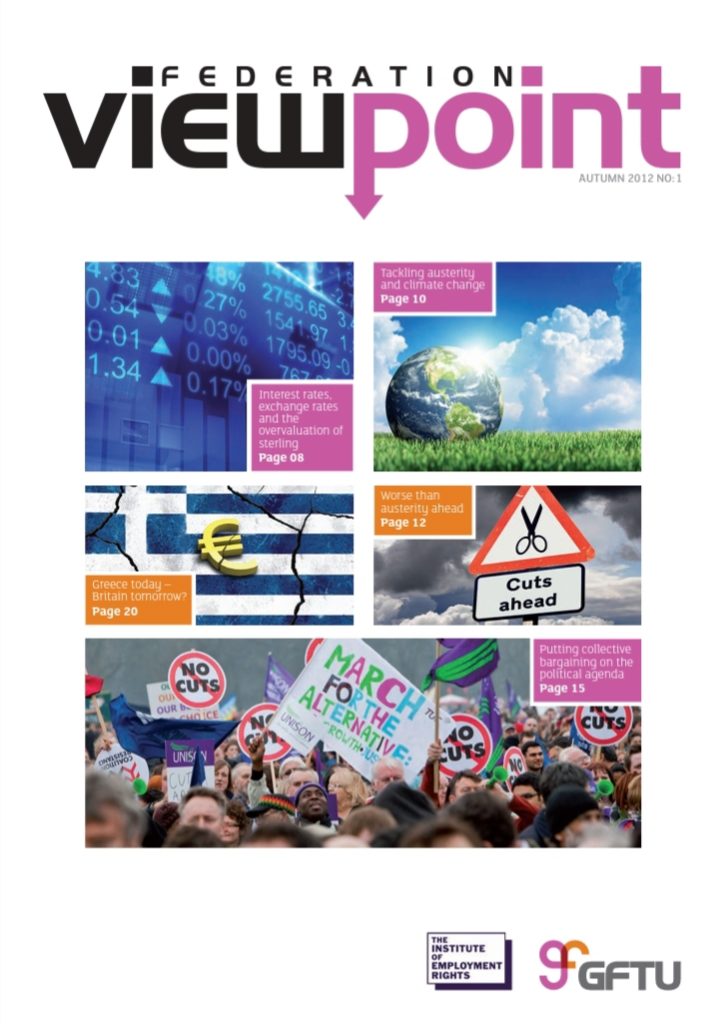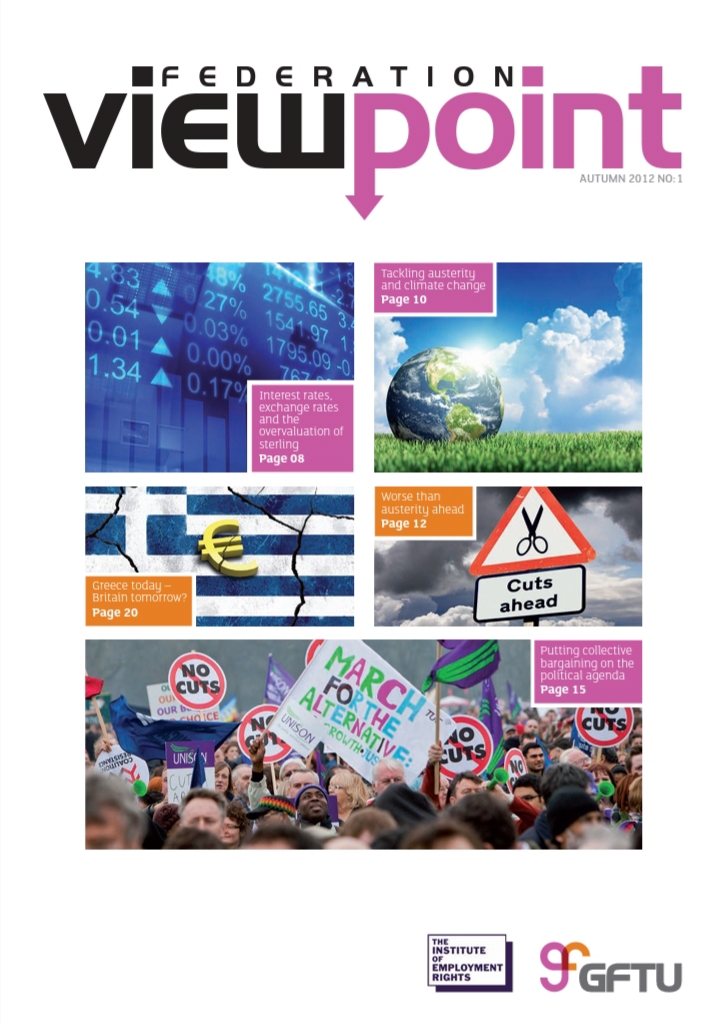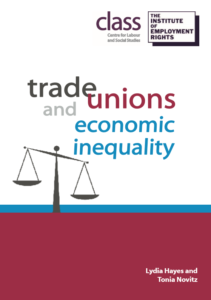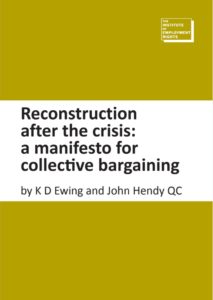Federation Viewpoint Autumn 2012 No:1
There is an alternative. Federation Viewpoint details nine of them through articles written by employment law experts, trade unionists and economists.
£2.00 – £4.00
About the book
It has been the refrain of the Tory party since the 1980s – there is no alternative. There is no alternative to the cuts that hit the poorest in society yet somehow pass the rich by with barely a scrape; there is no alternative to mass redundancies that leave families struggling; there is no alternative to scrapping the vital employment rights that protect our livelihoods. And this line of rhetoric is hardly surprising. Of course the Tories have to say they are stuck for options. Who would vote for swingeing austerity cuts and thousands of job losses if they were not led to believe they were demonstrating proud British stoicism in the face of adversity?
But the reality of the situation is quite different. Experts across the country – in economics, in law, in politics – have been arguing for years that there is not only one alternative, there are many. They are appealing for Britons to turn away from the manipulative fatalism of the Conservative Party, and look instead to the brighter future our nation could enjoy if we dared to break the status quo.
In our latest publication in conjunction with GFTU – the first edition of our brand new journal Federation Viewpoint – nine experts lay out their ideas for an alternative economic future. Here’s a preview of their arguments:
Prem Sikka, Professor of Accounting at the centre for Global Accountability in the University of Essex – Reforming banks
The stock market has no moral compass, it sees only one thing and that’s profit. Reform is essential and urgent and Sikka suggests three opportunities for real change, including nationalising the banks, allowing employees and customers to vote on executive recruitment and wages and instilling a culture of more open regulation.
John Mills, Labour Party Councillor for Camden – The wasted years
Mills explains how the deindustrialisation of Britain is in part due to high valuation of the pound, making it expensive to manufacture and export from the UK. With a lower exchange rate, we would be better equipped to pull ourselves out of austerity and if the government really tried, devaluing sterling is not difficult to achieve, he argues.
Keith Sonnet, Co-Chair of the Alliance for Jobs and Climate – Shifting the agenda
There are two urgent and vital issues facing the UK today – reducing carbon emissions and climbing out of recession. But these need not be seen as separate problems, as pushing for a greener economy could create the jobs we need to grow, Sonnet argues.
Enrico Tortolano, Head of National Bargaining Policy in the Public and Commercial Services Union – No way to run an economy
Decades of neo-liberalism has landed the UK in financial crisis, and made it a far more unequal society than just 30 years ago. Tortolano argues that a political and ideological change, driving for great equality between the average worker and those on the highest salaries, will safeguard the economy for the future. To achieve this, mass mobilisation, led by trade unions, is required, he states.
Keith Ewing, Professor of Public Law at King’s College London and President of the IER – The role of trade unions in economic growth
Increasing equality within the UK by offering higher wages to ordinary workers will stimulate the economy by increasing consumer demand, Ewing states. Trade unions have a vital role in achieving fair salaries for their members through collective bargaining. Encouraging further trade union membership and increasing the number of people who see their wages improved through collective agreements will help put the UK back on course.
Brian Denny, Editor of trade union journal RMT News – Monti II, mode 4 and social dumping
The EU’s Monti II regulations effectively give impunity to businesses importing cheap labour, regardless of the damaging side effects this has on wage levels and employment rights. Denny argues that it is worth thinking again about EU membership if it means the UK will be at the mercy of institutions primarily looking after the interests of big business rather than those of workers.
Paul Mackney, Chair of the Greece Solidarity Campaign – Solidarity with the people of Greece
Mackney calls on readers to join in solidarity with hard-working Greek campaigners, who continue to put up a fight against the harsh (and potentially illegal) austerity cuts that are destroying their livelihoods. It is time for us to stand together with fellow workers internationally to push for a brighter future and for us to take a lesson from the Greeks and refuse to give up easily, he concludes.
Linda Kaucher, Researcher in International Trade – European Capitalism
Neoliberalism is being irreversibly fixed in international law, allowing the financial services sector to have a damaging influence on immigration policy, allowing the private sector to import cheap labour and thus send wages downwards. Increased privatisation and liberalisation are being slipped in through the backdoor, she warns, arguing that this issue must be faced if a strong economic climate and equality in the workforce are to be achieved.
Jonathan Ledger, General Secretary of NAPO – Yankee Doodles
Ledger looks to troubling trends in the US, where lockouts are an increasingly common tactic used by employers against his staff. He also notes the commonalities between UK trade unionists and those based around the world and encouraged the labour movement to stand together in order to build a fairer world.
Preview
Click the image below to access a limited preview of the book.

Get your copy now (free to subscribers)
This publication is available in hard copy and as an electronic download. There are substantial discounts available for trade union members – please select the appropriate option from the drop down list below.
Subscribers
Those with a paid subscription to the IER can:
- Access their free copy of the publication immediately by logging in to their account You must be logged in to view this content.
- Save their free copy to their personal library by logging in to their account and selecting either of the ‘download’ options below. Please add the download to your basket and proceed to the checkout to save the product to your library – you will not be charged.









